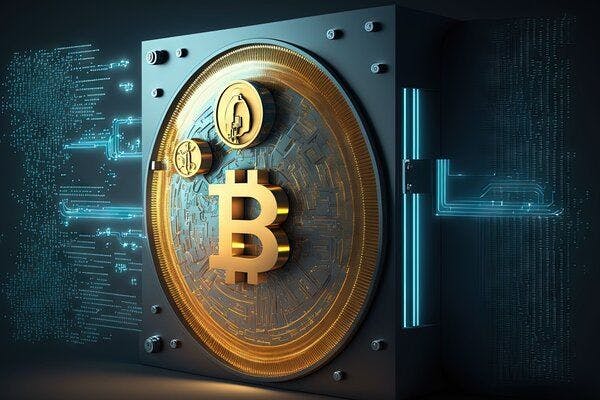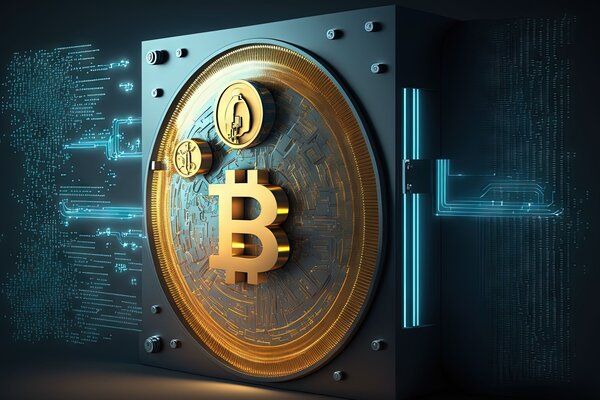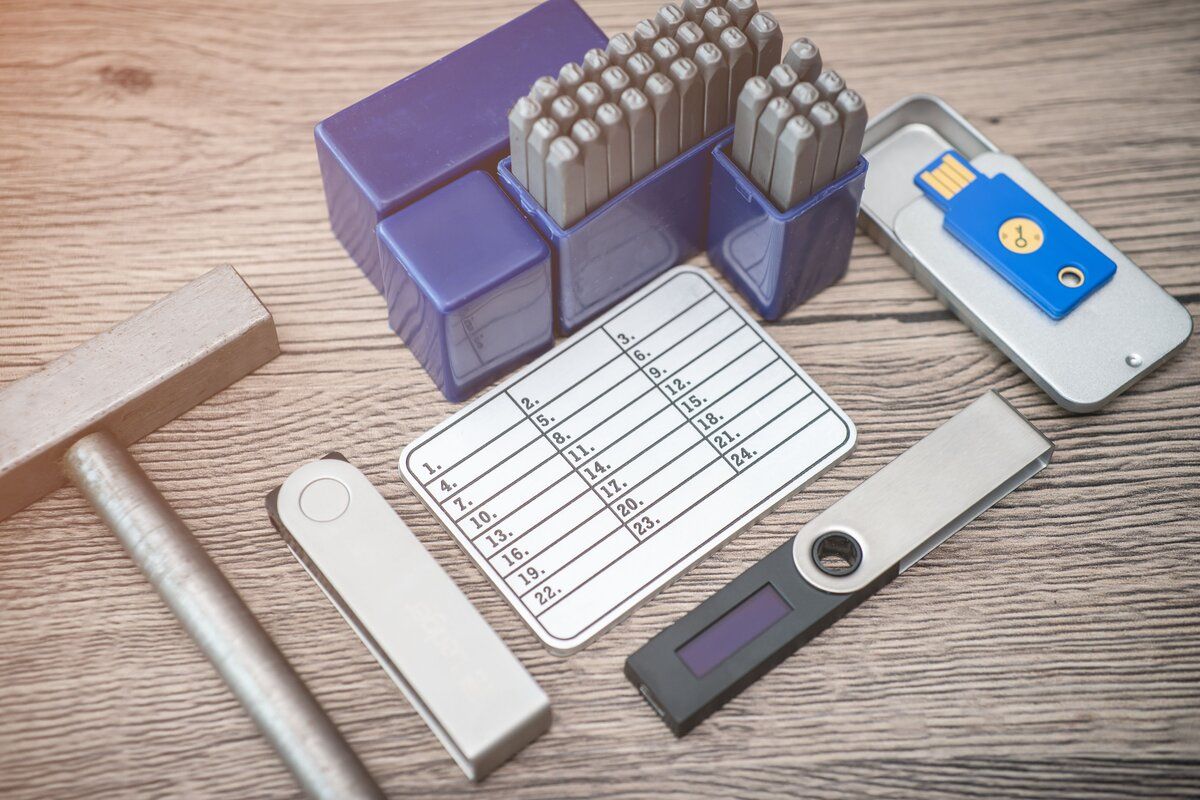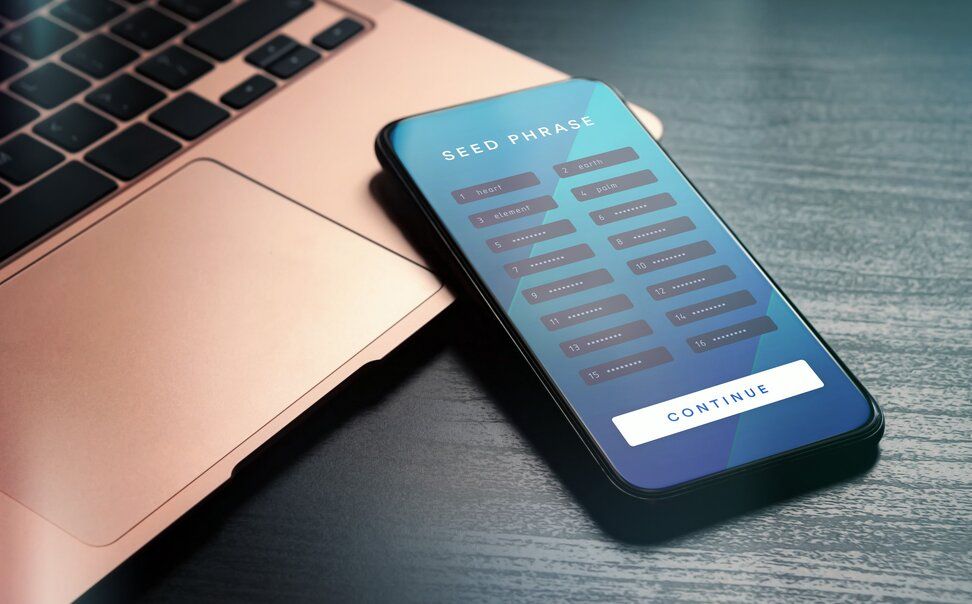
Best Non-Custodial Wallets for Bitcoin, Ethereum, and Altcoins
20 Sep 2023

20 Sep 2023

Non-custodial wallets have emerged as a favored choice for cryptocurrency enthusiasts and investors. In this article, we'll explore what non-custodial wallets are and the different types available, and ultimately make a case for DKG social recovery wallets as the best option.
Often referred to as self-custody wallets, non-custodial wallets are cryptocurrency wallets that provide users with full control over their private keys and funds. Unlike custodial wallets, which are managed by third-party services like exchanges, non-custodial wallets put the responsibility of safeguarding private keys squarely in the hands of the wallet owner.

The main benefits of non-custodial wallets relate to the enhanced security they offer:
If a centralized exchange holds your assets and they go bankrupt or get captured through regulation, you may never get your crypto assets back. With a non-custodial wallet, control and ownership of cryptos like Bitcoin and Ethereum remain with you.

The main pain points of non-custodial wallets have to do with the self-ownership aspect:
With a custodial solution such as Binance exchange, you do have the Binance name and team standing behind you in case something goes amiss. However, because the exchange is so big and popular, it is also one of the most heavily scammed brands in crypto history.
As with any custodial solution where a centralized organization controls your ownership and access to your Bitcoin, etc., you must also tread very carefully and always make sure you are interacting with the real deal.
For many crypto diehards, those risks are too high to make. So they prefer to self-custody their crypto in non-custodial wallets.
Hardware wallets are physical devices designed specifically for storing cryptocurrencies securely. These “hard” wallets generate and store private keys offline, making them immune to crypto scams, phishing attacks, and malware. Popular hardware wallets like Ledger Nano S, Ledger Nano X, and Trezor are widely considered as secure options for long-term cold storage (meaning offline).
A paper wallet is a physical document or material that contains a private key for storing and making transactions with cryptocurrency funds. Since paper wallets are offline, they are immune to online attacks. However, they are vulnerable to physical damage, loss, or theft, and are less convenient for everyday use.
DKG wallets are a relatively new addition to the non-custodial wallet landscape. They take security a step further by incorporating distributed key generation techniques. DKG wallets distribute parts of the private key across multiple devices or entities, adding an extra layer of security. This approach minimizes the risk of a single point of failure.
Social recovery wallets combine the security of non-custodial wallets with a unique twist. Instead of relying solely on physical backups or multiple devices, social recovery wallets allow users to set up a group of trusted contacts who can help recover the wallet in case of loss or access issues. This innovative feature bridges the gap between security and user-friendliness.
“We need wide adoption of social recovery wallets.” - Ethereum Founder, Vitalik Buterin
While all non-custodial wallet types have their merits, distributed key generation wallets with social recovery offer a compelling blend of security and convenience that sets them apart as the best option for cryptocurrency storage. Here's why:
Enhanced Security: DKG wallets distribute private key components, reducing the risk of a single point of failure. Even if one part of the private key is compromised, it cannot be used to steal the funds. This multi-layered security makes DKG wallets highly resilient against various types of attacks.
Reliable Recovery: Social recovery adds an extra layer of safety by allowing users to designate trusted contacts who can help recover the wallet in case of emergencies. If you lose your keys or forget your password, a threshold percentage of these contacts can collectively assist you in regaining access, making it less likely that you'll lose your funds permanently.
User-Friendly: While security is paramount, user-friendliness also matters. DKG wallets with social recovery strike a balance between security and convenience. They provide a safety net without sacrificing accessibility for users who may not be as tech-savvy or for those who don’t want to be held responsible for managing their private keys.
Adaptability: The cryptocurrency space is continuously evolving. DKG wallets can adapt to emerging threats and technologies, making them a future-proof choice for long-term cryptocurrency storage. Social recovery wallets can enable the user to easily and quickly update their network participants (aka Guardians), managing changes with just a few clicks.
Community and Trust: Trusting a group of known individuals and associated businesses as your recovery contacts can provide peace of mind. It eliminates the need to rely on centralized institutions or services for account recovery, aligning with the decentralized principles of cryptocurrencies.
When storing and transacting with your favorite crypto coins, your choice of wallet can make all the difference when it comes to security. While various types of non-custodial wallets exist, distributed key generation (DKG) wallets with social recovery stand out as the best option. They offer a unique blend of enhanced security, reliable recovery mechanisms, user-friendliness, adaptability, and a community approach in line with blockchain’s decentralized tenets.
The decentralized nature of cryptocurrencies calls for self-reliance and ownership over your digital assets. DKG wallets with social recovery empower users to:
As the crypto landscape continues to evolve, choosing the right wallet is a critical step in ensuring the safety and longevity of your investments. Download Gridlock Wallet, a DKG social recovery solution providing robust security and easy convenience as you navigate crypto markets.
- - -
Written by Reid Zedkongor

Reid Zedkongor is peeling away layers of confusion around blockchain and cybersecurity. With a computer engineering background, he can dive into the details of crypto complexities to make crypto adoption easy for everyone. In his free time, he often reads fiction or enjoys a good laugh over a beer.